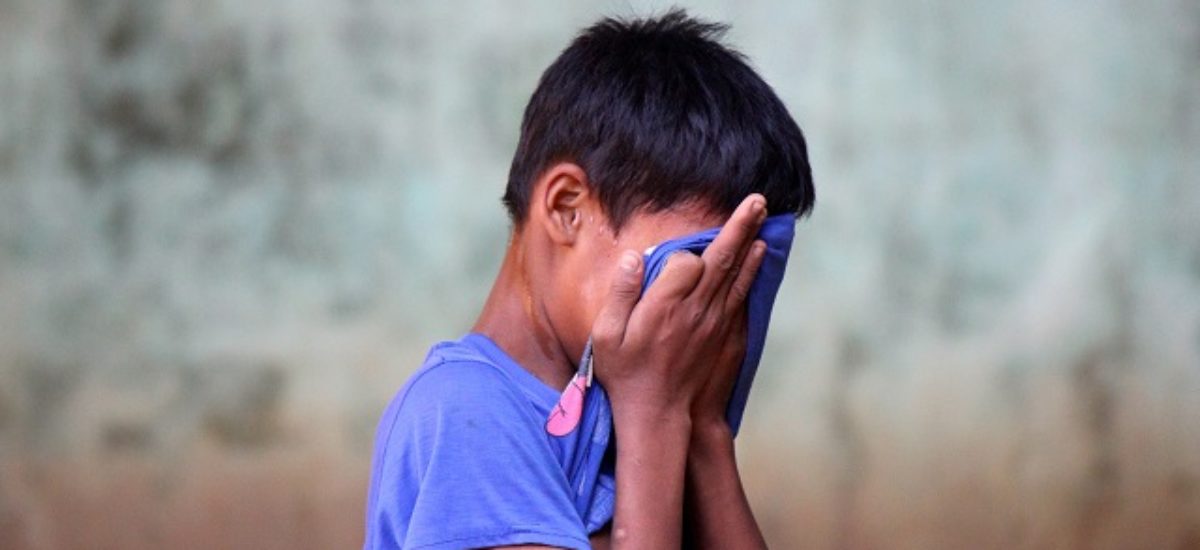Photo courtesy of Sri Lanka Guardian
World Children’s Day falls on November 20. Sri Lanka commemorated Children’s Day on October 1 and September 2 marked 30 years since the United Nations Convention on the Rights of the Child came into force.
Despite these celebrations and significant anniversaries to honour children, Sri Lanka has witnessed a steep increase in cases of child abuse. The National Child Protection Authority received 8,558 complaints through its 1929 hotline in 2019, according to its statistics. Because of the stigma attached to child abuse, many cases go unreported. The bigger picture is not reflected in the statistics; going by international figures, reported cases are likely to represent just 10 percent of the actual number of incidents.
The term child abuse brings to mind sexual or physical abuse that can be identified by external injuries and scars. But child abuse also encompasses neglect and mental and emotional abuse. In these instances, there are no visible bruises on the body but there are lifelong consequences for the child’s mental and emotional wellbeing.
Successful child abuse prevention interventions must reduce risk factors and promote protective measures to ensure the safety of children and their families. Children must be spared pain and suffering, both physical and psychological. Early intervention is more efficient and effective than later intervention.
Intervention and prevention of child abuse enables children to avoid long term physical and mental harm. A child who has been a victim is more likely to be victimised again in the justice process. It is extremely difficult to reintegrate a child who has been abused, so he or she is at risk of committing crimes as a result of being abused. Through negative socialisation, a child becomes a criminal. Therefore, a solution to prevent children from committing crimes is the prevention process.
Sri Lankans receive their sex education in an informal manner through peer groups, the Internet and pornography. They are first in the world when it comes to searching for the word sex on Google. The lack of proper sex education is a fundamental reason for the growing number of child sexual abuse cases. Providing sex education to children appropriate to their age in the school curriculum has become an urgent requirement. Young children need to be taught the importance of protecting their bodies and to understand the difference between good touches and bad touches. If someone touches them in a way that makes them feel uncomfortable, they should be told to report the incident to a trusted adult. In 90 percent of reported cases, the perpetrator is someone who knows the child well.
There are many different government agencies that work towards the betterment of the children. By formulating a National Plan of Action, the activities of these different agencies can be streamlined. The roles and the responsibilities of the agencies can be clearly defined to increase efficiency. The plan can be formulated as national policy. One of the NGOs working against child abuse, ECPAT Sri Lanka-(PEaCE), has drafted a National Plan of Action that has been submitted to the Cabinet for approval.
Many cases are stalled due to insufficient evidence or improper gathering of evidence when building a criminal case. Child protection officers do not possess adequate professional knowledge about dealing with child abuse cases. This is especially true when it comes to child sexual exploitation online. It is important for officers to conduct their investigations in such a way that the child does not become a victim again in the process of administering justice. They need know how to identify children at risk and to educate the community on how to prevent child abuse.
The Penal Code of Sri Lanka was amended in 1995 after a campaign against child sexual exploitation in the travel and tourism industry but there is an urgent need to amend the legal framework further. Inadequate laws related to crimes involving child sexual abuse allow perpetrators to escape punishment, especially with regard to the Internet because the existing laws have not been updated to provide for new technology.
The development of positive parenting skills through awareness programmes and home visitations can prevent child sexual abuse by providing information, caregiver support and training on child health and development.
The sustainable remedy to prevent child sexual abuse is to change the attitude of the individual. One way to do this is to create social awareness with education and capacity building programmes. Attitudes can also be changed through the development of personal self-worth; a person who feels he or she is valued and respected by society is less likely to commit crimes.
The writer is a Project Officer at ECPAT Sri Lanka-PEaCE

